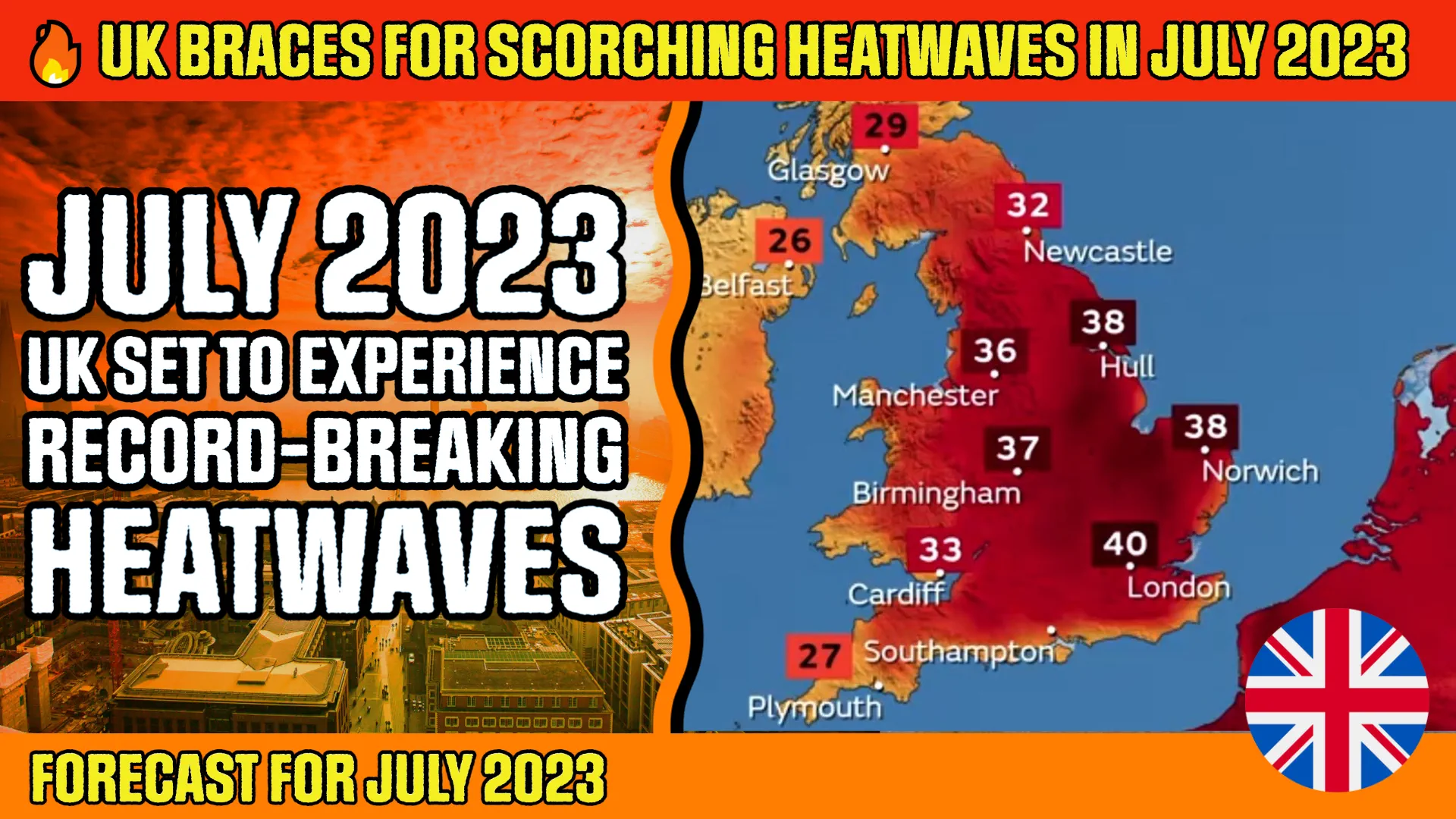
2023 is preparing Record-Breaking Heatwaves with scorching temperatures for the UK.
Better be prepared for scorching heatwaves this July as the UK braces itself for soaring temperatures. The experts at the Met Office are forecasting sweltering conditions during the final two weeks of the month, with a possibility of surpassing last summer's record-breaking temperature of 37 point 1 Celsius in Hawarden, northeastern Wales.
The presence of hot continental air means that we can't rule out the likelihood of further extreme temperatures.
Jonathan Vautrey, a meteorologist from the Met Office, explains that as we move towards the middle to the end of July, there is an increased chance of high-pressure systems becoming established.
The weather patterns suggest that northern regions are more likely to experience drier conditions, while the risk of showers and thunderstorms is higher in the southern areas. Throughout the middle to the end of July, the chances of heatwaves occurring will be greater than usual.
Our climate is changing, and it's continuously pushing the boundaries of extreme temperatures. Experts point out that last year's unexpected 40 Celsius heatwave was beyond what anyone had anticipated. This indicates a possibility of further extremes occurring in the future.
Although during the last days of June, the weather conditions were cooler and more unsettled, reports suggest that this respite from the heat will be short-lived. Weather maps show a quick and intense return of scorching heat on the sixth of July.
There are claims that the country could experience temperatures exceeding 30 Celsius for a two-week period, starting around the fifteenth of July. Meteorologist Jim Dale from British Weather Services is inclined to believe this scenario.
If these predictions come true, it would mark the second July in which Britain experiences unprecedented humidity. On the nineteenth of July, 2022, the country witnessed scorching temperatures of 40 Celsius, breaking previous records.
The potential impact of such heatwaves can be significant. Extreme heat poses risks to our health, especially for vulnerable people. But don't worry, there are things we can do to beat the heat and stay safe. Here's what you need to do:
Stay hydrated. Drink plenty of water to keep your body cool and refreshed. It's crucial to avoid dehydration during hot weather.
Find shade or create your own. When you're outside during the hottest parts of the day, seek out shady spots or use umbrellas, hats, or sunglasses to protect yourself from direct sunlight. This can make a big difference in keeping you cool.
Limit sun exposure. Try to avoid being outside for prolonged periods during peak heat hours. If you need to go out, plan your activities for early mornings or evenings when it's cooler.
Look out for others. Check on the elderly and individuals with health conditions who may be more vulnerable to the heat. Ensure they have access to cool environments or offer assistance if needed. It's important to support one another during these challenging times.
Remember, these heatwaves are a stark reminder of the ongoing challenges posed by climate change. We all play a role in reducing its effects. Take action by decreasing your greenhouse gas emissions. You can start by conserving energy at home, using public transportation, or choosing sustainable alternatives whenever possible. Let's embrace environmentally friendly practices and support initiatives that create a healthier planet for ourselves and future generations. Together, we can build a sustainable and resilient future.